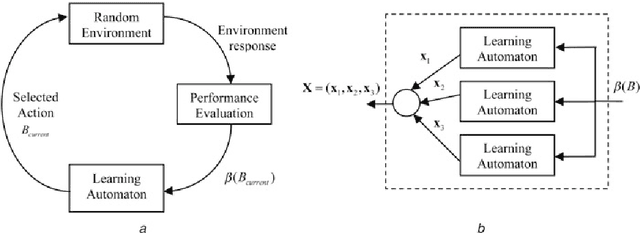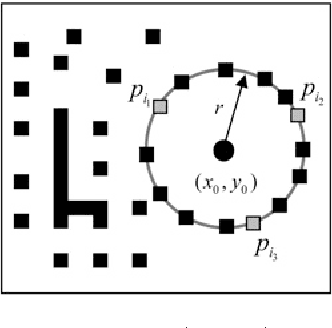Circle detection on images using Learning Automata
Paper and Code
May 21, 2014



Circle detection over digital images has received considerable attention from the computer vision community over the last few years devoting a tremendous amount of research seeking for an optimal detector. This article presents an algorithm for the automatic detection of circular shapes from complicated and noisy images with no consideration of conventional Hough transform principles. The proposed algorithm is based on Learning Automata (LA) which is a probabilistic optimization method that explores an unknown random environment by progressively improving the performance via a reinforcement signal (objective function). The approach uses the encoding of three non-collinear points as a candidate circle over the edge image. A reinforcement signal (matching function) indicates if such candidate circles are actually present in the edge map. Guided by the values of such reinforcement signal, the probability set of the encoded candidate circles is modified through the LA algorithm so that they can fit to the actual circles on the edge map. Experimental results over several complex synthetic and natural images have validated the efficiency of the proposed technique regarding accuracy, speed and robustness.
 Add to Chrome
Add to Chrome Add to Firefox
Add to Firefox Add to Edge
Add to Edge